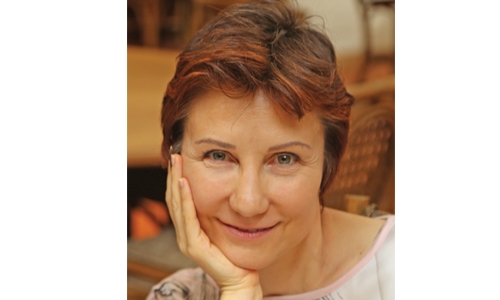Women & Diplomacy
Cécile Longe, The Ambassador of French Embassy to Bahrain and Foreign Affairs Counsellor (Middle-East) speaks to DT News on Women in Diplomacy and importance of women in Diplomatic positions.
Tell us about your work and why you felt it was important to get involved?
My work is made up of team building and management, meetings and exchanges with the local authorities, my colleagues, the French Community, personal sequences of concentration and loneliness to write for my capital, lot of representation and public speeches, setting up projects, gathering funds whenever possible, helping French enterprises to settle down in Bahrain, and many other things that make this job a fascinating one.
You definitely cannot do it without personal dedication because you represent a country as a whole, whose ruler has made you the honour to be His ambassador near the local ruler. It is an H24-work. So it is not only important to be involved, it is a vital necessity.
What do you think many of the women getting into diplomacy?
Diplomacy has always attracted talented young men and women, at least since the 2nd World War, but always in minor quantity than men. The first woman ambassador was appointed in 1972 and still, now we are less than a quarter of all French Ambassadors around the world.
The real issue nowadays is to encourage the creation and maintenance of a pool of young female diplomats that would have a vocation to accede in a greater amount to highest positions and to lift the invisible hurdles that prevent these women, after two decades of career, to effectively accede these positions.
Why are women necessary in diplomacy?
They are necessary for every sphere of human activity, and particularly those where the female half of humanity is still notably under-represented. And that is also true for politics, by the way.
A great majority of women at work dedicate their effort to the common interest in the first instance. There should be no area set aside for men, but in real life, the work conditions make it hard for women to reconcile private obligations and professional commitment. Let us not forget who bears children, and this is not just about 9 months but actually two decades at least.
How can management promote better representation of women in diplomacy?
Human Resource management has a key-responsibility in promoting women in diplomacy. See point above: if a meeting starts at 7 pm at the office and your presence is necessary, and your little one is sick at home and claims his mother (I have been through the situation many times), how could you possibly consider making a career on an equal level field with your male colleagues? Great thought is being dedicated in France to the means to break the “glass-ceiling”, namely in diplomatic career: a charter on working hours, day-nursery close to the office, but also training for women’s self-empowerment when it comes to taking up higher responsibilities.
What will your message be for young girls who want to get into the field of diplomacy?
I would tell them that if they passed the competition, which is one of the hardest, then they deserve to be promoted and respected equally with their male colleagues. But I would also tell them not to fall into the trap that would consist in considering that it is all granted now to them due to the fact that they belong to the “gender-to-be-promoted”. Nothing would be worse than indulging into the temptation to appoint a woman to a post just because of a quota-policy, disregarding of her professional competence. That would be counter-productive and we all women would pay the price for it.
Related Posts

